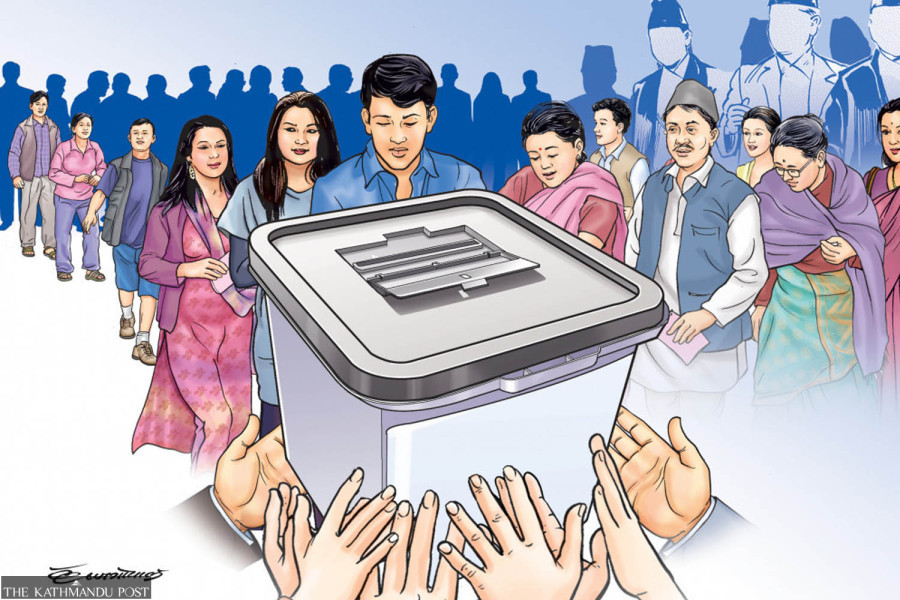Editorial
Missing consensus
Political roadblock to timely election can be cleared if stakeholders show a spirit of accommodation.
On Monday, the Election Commission (EC) published a detailed schedule for the March 5 snap polls, directing any group aspiring to contest the election to register a political party by November 16. The EC has laid down a crystal-clear chronology, soundly scheduling January 16 for FPTP candidate registration and December 1 for PR candidates. With these deadlines looming, the prospects of snap polls are being jeopardised by a paralysing push and pull between President Ramchandra Paudel and interim Prime Minister Sushila Karki over who will call the traditional parties for a discussion to forge a political consensus over the elections. PM Karki, who was appointed through the mandate of the Gen Z movement, is reportedly hesitant to invite the political parties—the Nepali Congress, the CPN-UML, and the CPN (Maoist Centre)—for elections.
Amid the government’s failure to expedite the electoral process and the grumbles of the Gen Z movement, the chasm between the interim administration and the old guard is widening by the day. Some traditional parties, including the Maoist Centre and Unified Socialist, have already accepted the legitimacy of the interim government and snap polls. But other parties still question the legitimacy of the dissolution of the parliament, formation of the interim government and the snap polls. This clash between the old parties and the interim government must cease for the polls to proceed as planned.
The Gen Z’s clarion call that echoed through the streets on September 8 and 9 must be translated into representation in statecraft as also highlighted by Sudan Gurung’s presence in a meeting of the NDRRMA. Their presence in forging political consensus is crucial. The youth will not wait, nor will they sit silent, while their place at the table is compromised. Gen Z seeks not patronage but participation. Yet their representatives also cannot deny the old parties a place at the table. After all, the vast majority of Nepali voters trusted them with their votes in the last elections.
On the other hand, the old parties must put their petty politics aside as precious time is being lost. They must shed their suspicion and self-interest to make room for fresh civic currents. It is also incumbent on the old parties to prove that they are in tune with the changed times, for instance, by starting a clear process for the departure of their top leaders, mainly Sher Bahadur Deuba (the Congress), KP Oli (the CPN-UML) and Pushpa Kamal Dahal (Maoist Centre). Unlike what Prime Minister Karki seems to believe, it is not so much the old parties that the Gen Z protestors have rejected, but more so the troika of leaders who have repeatedly failed the country.
In order to build confidence for the polls, all stakeholders in the current political process must be ready to make some compromise. Bickering over whether the prime minister or the president or the Election Commission should take the initiative for political dialogue will only waste more precious time. At the end of the day, no democratic party can run away from elections. The elections, in turn, won’t have much legitimacy if there is only limited participation of political actors. Much of the problem will be solved if the major stakeholders show a little spirit of accommodation.




 18.12°C Kathmandu
18.12°C Kathmandu














